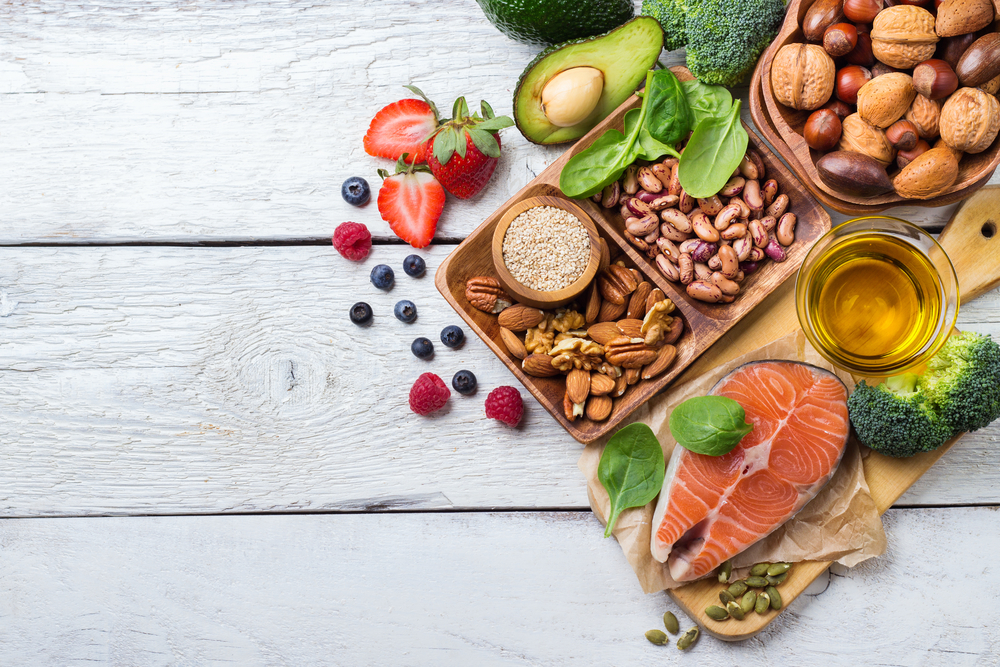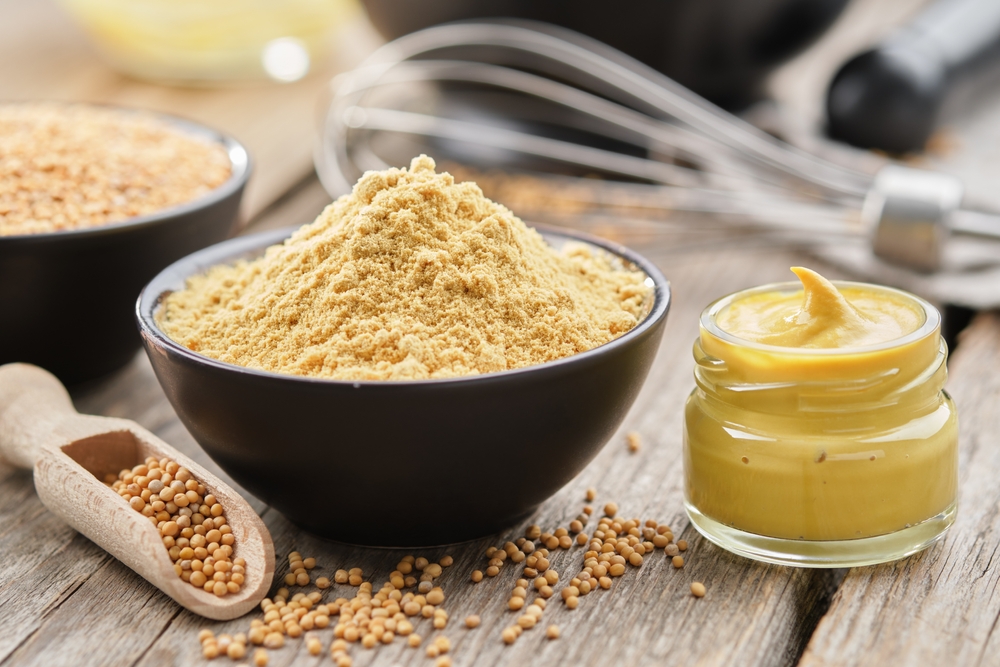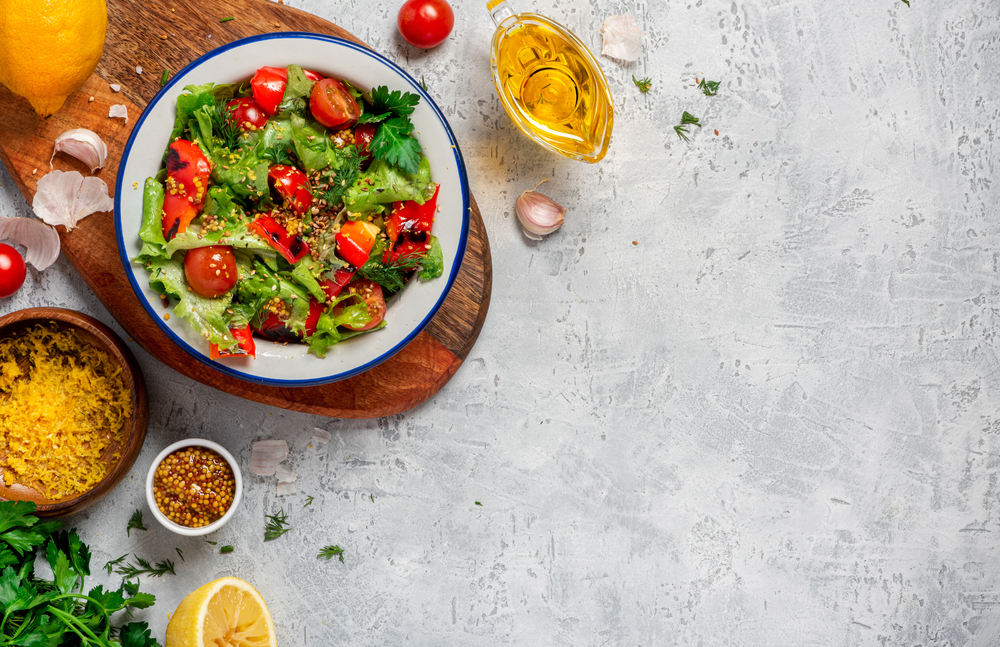Mustard seed uses go beyond being a simple kitchen staple used to enhance your dishes. This wonder spice might be tiny, but its benefits pack a punch that can revitalize your health. From enhancing digestion to boosting immunity, the benefits of mustard seeds have been cherished for centuries (1). The word “mustard” comes from the Latin phrase “mustrum ardens,” which means something that gives wines a smoky, peppery flavor; the Greeks termed it “Sinapis.” Botanically a member of the cabbage family (cabbages are known as brassica in Latin), science combined both origins and gave it a composite name — Brassica juncea L., Sinapis alba L., and so on.
While mustard sauce is a well-known table condiment in the West, mustard seeds are a vital ingredient in Indian kitchens. Mustard seed benefits are endless. Read on!
Nutritional Value of Mustard Seeds
The mustard seed is a true gem among superfoods. Mustard seed benefits have earned their rightful place in the nutrition world thanks to their strong antioxidant levels and outstanding vitamin and mineral content (2), (3).
Let us explore the nutritional status of mustard seeds.
Phytonutrients: Glucosinolates (sulfur compounds such as sinigrin and sinalbin), and isothiocyanates:
They are common in mustard, cabbage, broccoli, etc., and have anti-inflammatory, and detoxifying properties. These glucosinolates are dormant until they come into contact with water or moisture. In water, they are hydrolyzed into isothiocyanates, glucose, and potassium bisulfate, which is what gives mustard its pungency (4)!
Healthy Fats
Mustard seeds are rich in healthy fats, particularly monounsaturated fats, and omega-3 fatty acids.
Vitamins and Minerals
Mustard seeds are abundant in vitamins and minerals. They are a great source of the B-complex, including thiamin, riboflavin, niacin, folate, vitamin E, A, and vitamin K.
Proteins
Mustard seeds are an excellent plant-based source of protein. They contain all nine essential amino acids.
Antioxidants
Mustard seeds contain potent antioxidants, including selenium and vitamin E.
Apart from these, mustard seeds are also rich in fiber and minerals like sodium, potassium, iron, calcium, zinc, and phosphorus (2), (3).
Health Benefits of Mustard Seeds
Mustard seeds are so much more than taste and flavor. Mustard seed uses have been celebrated for centuries for their health benefits, and it’s time to reveal the amazing ways in which these tiny seeds can improve your health.
Key health benefits of mustard seeds:
Heart Health
The omega-3 fatty acids in mustard seeds help reduce inflammation, lower cholesterol levels, and support cardiovascular function. The abundance of vitamin K is crucial to the series of events that lead to blood coagulation. It keeps the heart and blood circulation in the body healthy by assisting the clotting process. (5).
Improves Immunity
The abundant supply of vitamins C and A in mustard seeds produces T cells, an active component of body immunity. These actively combat inflammation and infection in the body. Vitamin C, selenium, and phytonutrients can bolster your immune system by protecting the body cells from damage by free radicals (6).
Antioxidants
Antioxidants like flavonoids and lutein scavenge free radicals and prevent oxidative damage. This mechanism is facilitated by vitamin B-complex-rich mustard seeds (7).
Eye Health
Mustard includes the antioxidants zeaxanthin and lutein, which may help prevent age-related macular degeneration, the main cause of blindness around the globe. These two chemicals specifically assist in filtering out dangerous blue light (8).
Anti-Inflammatory Properties
Isothiocyanates are compounds that may help reduce inflammation in the body, potentially offering relief from conditions such as arthritis and inflammatory bowel disease (9).
Digestive Health
Mustard stimulates the production of digestive juices and enzymes, which can aid in better digestion and nutrient absorption. Their fiber content promotes bowel movements and alleviates common digestive issues such as indigestion, bloating, and gas (2).
Respiratory health
The mustard seeds possess expectorant properties that can help loosen mucus and facilitate easier breathing (10).
Cancer Protective
The presence of glucosinolates has been linked to potential cancer-preventive properties. These compounds can help inhibit the growth of cancer cells and protect against certain types of cancer, including colon, lung, and bladder cancer (2).
Skin Benefits Of Mustard Seeds
When it comes to skincare, mustard seeds have hidden treasures that can do wonders for your skin. Here are some benefits of mustard seeds for the skin:
- Mustard seeds are high in antioxidants, including vitamin C and selenium, which have anti-aging properties. It effectively reduces wrinkles, fine lines, and dull skin (7).
- The vitamin C found in mustard seeds is well-known for its ability to brighten skin, fade dark spots, even out skin tone, and promote a radiant, luminous complexion (7).
- Mustard seed oil is a great source of omega-3 and omega-6 essential fatty acids. These fatty acids improve the texture of the skin by nourishing and moisturizing it (5).
- Skin diseases like acne, eczema, psoriasis, and rosacea may be improved using mustard seed oil due to its anti-inflammatory properties.
- Mustard seeds are useful in the treatment of acne due to their antibacterial and antifungal qualities (11). They can aid in the removal of pollutants, surplus oil, and bacteria, lowering the possibility of breakouts and fostering clearer skin.
Hair Benefits Of Mustard Seeds
The benefits of mustard seeds extend beyond the skin. They are wonderful for your hair as well.
These are a few mustard seed uses for hair:
- Mustard seeds have antibacterial and antifungal properties that can help maintain a healthy scalp. They help combat dandruff, fungal infections, and other scalp conditions (11).
- The high fatty acid content of mustard seed oil makes it an excellent all-natural hair conditioner. It helps moisturize and soften hair to increase its manageability, radiance, and luster (5).
- Proteins and omega-3 fatty acids found in mustard seeds may strengthen hair strands, stop breakage, and lessen hair loss (5).
- Mustard seed oil is an essential source of protein, vitamins (such as vitamins A, E, and B-complex), and minerals (such as iron and calcium) that nourish the scalp and promote the growth of strong, healthy hair (3).
How to Use Mustard Seeds
Mustard seeds can be used in various ways to enhance the flavor of your dishes and reap health benefits at the same time. Here are some common methods for using mustard seeds:
Daily cooking
They can be used whole, broken down, or powdered. It is customary to heat mustard seeds in hot oil or ghee (clarified butter) in order to bring out their flavor.
Spice Mixtures
Curry powders, garam masala, and spice rubs frequently contain mustard seeds as an ingredient.
Seasoning
Add whole or crushed mustard seeds to salads, roasted vegetables, or stir-fries to impart a mildly nutty, slightly spicy flavor. You can also add them to marinades, salads, and sauces (like mustard sauce).
Sprouts
Additionally, mustard seeds may be sprouted and added as a garnish or in salads and sandwiches.
Other Uses of Mustard Seeds
Although mustard seeds are most famous for their culinary flavor and health advantages, they also have a variety of other fascinating uses.
Here are a few other uses for mustard seeds:
Making Traditional Medicines
Traditional medical practices like Ayurveda and Chinese medicine have traditionally used mustard seeds for therapeutic purposes.
Farming
They are occasionally used in organic farming as a natural biofumigant and fertilizer. When mustard plants are planted in the soil, they emit substances that serve as organic pest deterrents and soil fungicides (12).
Side Effects of Mustard Seeds
Even though mustard seeds are generally safe to eat and have many health advantages, it’s crucial to be aware of potential side effects.
Allergy
If vegetables like cabbage and broccoli don’t suit you, then mustard seeds may also irritate your stomach. Avoid mustard seeds and related items if you have a known cruciferous vegetable sensitivity.
Skin and Scalp Sensitivity
Some people may develop skin rashes or allergic reactions after direct contact with mustard oil. It is advisable to do a patch test before application.
Conclusion
Mustard seeds are a mini powerhouse of healthy compounds and are widely used all over the world. While they are prepared differently in America, Europe, and Asia, the benefits of mustard seeds remain the same. From aiding digestion to promoting heart health, reducing inflammation, and supporting the immune system, mustard seeds offer you a wide range of advantages. Moreover, mustard seed used for the skin and hair is a modern craze. So, whether you’re looking to enhance your health, revitalize your skin, stimulate hair growth, or simply add a delightful zing to your recipes, mustard seeds are a remarkable addition to your lifestyle.
References
1. Grygier A. Mustard seeds as a bioactive component of food. Food Reviews International. 2022 Jan 12:1-4.
https://www.tandfonline.com/doi/pdf/10.1080/87559129.2021.2015774?needAccess=true&role=button
2. Szőllősi R. Indian mustard (Brassica juncea L.) seeds in health. InNuts and seeds in health and disease prevention 2020 Jan 1 (pp. 357-364). Academic Press.
https://www.sciencedirect.com/science/article/abs/pii/B9780123756886100787
3. Abul-Fadl MM, El-Badry N, Ammar MS. Nutritional and chemical evaluation for two different varieties of mustard seeds. World Applied Sciences Journal. 2011;15(9):1225-33.
4. Das G, Tantengco OAG, Tundis R, Robles JAH, Loizzo MR, Shin HS, Patra JK. Glucosinolates and Omega-3 Fatty Acids from Mustard Seeds: Phytochemistry and Pharmacology. Plants (Basel). 2022 Sep 1;11(17):2290.
https://www.ncbi.nlm.nih.gov/pmc/articles/PMC9459965/
5. Mishra S, Manchanda SC. Cooking oils for heart health. J Prev Cardiol. 2012;1(3):123-31.
6. De LC. Edible seeds and nuts in human diet for immunity development. Int. J. Recent Sci. Res. 2020 Apr;6(11):38877-81.
7. Grygier A. Mustard seeds as a bioactive component of food. Food Reviews International. 2022 Jan 12:1-4.
https://www.tandfonline.com/doi/pdf/10.1080/87559129.2021.2015774?needAccess=true&role=button
8. Meena RK, Kumari M, Koli GK, Meena RK. Leafy mustard: a healthy alternative to green vegetables. J. Biotica Research Today. 2022;4(5):376-8.
9. Manohar P R, Pushpan R, Rohini S. Mustard and its uses in Ayurveda.
https://www.researchgate.net/publication/215533380_Mustard_and_its_uses_in_Ayurveda
10. Lietzow J. Biologically Active Compounds in Mustard Seeds: A Toxicological Perspective. Foods. 2021 Sep 3;10(9):2089.
https://www.ncbi.nlm.nih.gov/pmc/articles/PMC8472142/
11. Hanif MA, Bhatti HN, Jamil MS, Anjum RS, Jamil A, Khan MM. Antibacterial and antifungal activities of essential oils extracted from medicinal plants using CO2 supercritical fluid extraction technology. Asian journal of chemistry. 2010 Nov 30;22(10):7787.
12. Bañuelos, G. S., & Hanson, B. D. (2010). Use of Selenium-enriched Mustard and Canola Seed Meals as Potential Bioherbicides and Green Fertilizer in Strawberry Production, HortScience horts, 45(10), 1567-1572.








